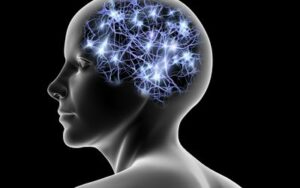Gluten is a type of protein found in grains such as wheat, rye, and barley. In the past few years, gluten-free diets have become popular for people with conditions such as celiac disease and gluten sensitivity. For many people with these conditions, gluten is a source of inflammation and pain. In this article, we will explore the relationship between gluten and ADHD – two terms that are often used interchangeably but have different meanings when referring to research. We will also look at some of the latest research on the topic, and provide tips on how you can improve your relationship with gluten.
Contents
What is Gluten?

Gluten is a type of protein found in most grains, including wheat, rye, and barley. Also, Gluten can cause problems for people with ADHD because it can affect their ability to focus and pay attention.
Gluten is also a common allergen. People with celiac disease (an autoimmune disorder that causes inflammation of the small intestine when gluten is consumed) must avoid gluten because it can cause severe damage to their intestines. People use gluten to make bread, pasta, and other baked goods.
Gluten and Adhd: The Relationship Between the Two Terms

There is a growing body of research that suggests a relationship between gluten and ADHD.
There is some debate about whether gluten causes ADHD, or if ADHD causes gluten intolerance. However, there is enough evidence to suggest that the two are related. A study published in the journal Nutritional Neuroscience found that children with ADHD had lower levels of antibodies against gluten than non-ADHD children. This suggests that gluten may be causing some of the symptoms of ADHD in these kids.
Another study published in the journal Psychosomatic Medicine found that people with ADHD were more likely to have Celiac disease than people without ADHD. Celiac disease is an autoimmune disorder that occurs when your body attacks your gut tissue because of gluten exposure. Symptoms of Celiac disease include GI problems (such as diarrhea, constipation, and bloating), joint pain, fatigue, and headaches. These symptoms can also occur without any food allergies or celiac disease diagnosis.
It’s still not clear whether gluten truly causes ADHD or whether ADHD causes gluten intolerance. However, there is enough evidence to suggest that they are related and that both conditions need to be taken into account when managing someone’s health.”
Another article on this site says that gluten and ADHD have been linked for a long time, however, the extent of the connection is still up for debate.
Effects of Gluten on the Brain

The effects of gluten on the brain are still being studied. However, gluten likely has some role in the development of ADHD symptoms. It is also possible that gluten may increase the risk of other disorders, such as depression and anxiety. Therefore, people with ADHD need to be aware of the potential risks and benefits of gluten consumption.
Some of these effects of gluten on the brain can be:
Difficulty Focusing
One of the main effects of gluten on the brain is difficulty focusing. Gluten can affect decision-making, attention span, and working memory. These problems may be more common in people with ADHD than in people without ADHD.
Hyperactivity
Gluten can also increase the risk of hyperactivity. Hyperactivity is a common symptom of ADHD and is generally characterized by a need to constantly move or be active. This activity can be problematic for people with ADHD because it often leads to impulsiveness and hyperactivity.
Impulsiveness
Impulsiveness is another common effect of ADHD. This means that people with ADHD are often quick to act without thinking things through first. This can be especially problematic when it comes to making decisions that involve risks or consequences. Gluten may increase the risk of impulsiveness by affecting the way the brain processes information.
Anxiety
Anesthesia is a condition in which individuals cannot feel pain. There is some evidence that gluten may cause anesthesia. This may lead to problems with anxiety and other symptoms associated with ADHD, such as difficulty focusing and hyperactivity.
Depression
Dietary gluten can also lead to depression. This is because gluten can impact the way the brain produces serotonin. Serotonin is a neurotransmitter that plays an important role in mood and anxiety.
However, gluten consumption can have some harmful effects on the brain. Therefore, people with ADHD need to be aware of the potential risks and benefits of gluten consumption.
Conclusion
While there is no one-size-fits-all answer when it comes to gluten and ADHD, it is important to understand that there may be a relationship between the two. Gluten can cause symptoms in people with ADHD such as impulsiveness and hyperactivity, which could make managing wheat allergies difficult. Additionally, people with ADHD are more likely to have problems with gluten because they are not able to properly digest it. There are many ways to live a gluten-free lifestyle and work around any wheat sensitivities you might have, so don’t feel like you need to suffer in silence or live on a strict diet if you have ADHD. Talk about your concerns with your doctor or other healthcare professionals and see what kind of advice they can provide.
Hope this article was of help to you! If you are suffering from mental health disorders, you may seek help from Therapy Mantra. We have a team of highly trained and experienced therapists who can provide you with the tools and skills necessary for overcoming mental health disorders. Contact us today to schedule an online therapy or download our free Android or iOS app for more information.


